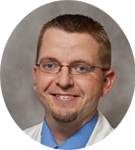Hosted by: Constellation®, Iowa Healthcare Collaborative + Society to Improve Diagnosis in Medicine
Working Together to Improve Diagnosis
Overview
Diagnostic errors affect an estimated 12 million Americans each year, and likely cause more harm to patients and residents than all other medical errors combined.
Working Together to Improve Diagnosis took place on May 25—27, 2021. This virtual conference highlighted the alarming impact diagnostic error has on patients, residents, care teams and organizations. Over three half-days, industry experts from across the nation shared best practices and successes for improving diagnostic processes in health care organizations. The conference also emphasized the importance of communication after a harm event. Constellation® co-hosted this conference with Iowa Healthcare Collaborative (IHC) and the Society to Improve Diagnosis in Medicine (SIDM). Conference recordings are now available on demand.
The conversation about improving diagnostic processes continues through a year-long virtual collaborative: Taking Action to Close the Loop on Diagnostic Error. Collaborative participants will have the opportunity to work on improving the diagnostic process in their own organization.
Agenda Recap
KEYNOTE: DEFINING THE LANDSCAPE AND SETTING THE AGENDA FOR DIAGNOSTIC ERRORS: WHAT WILL IT TAKE TO ACHIEVE DIAGNOSTIC EXCELLENCE
David Newman-Toker, Director, Armstrong Institute Center for Diagnostic Excellence, Johns Hopkins Medicine
Diagnostic errors are almost certainly the most common, most costly and most catastrophic of medical errors. Despite this, they were largely ignored for the first two decades of the patient safety movement era. Over the past five years since the publication of the National Academy of Medicine report on Improving Diagnosis in Healthcare, this has finally begun to change. In this session, Dr. David Newman-Toker reviewed the scope of the problem, the complexity of causes and the need for multi-faceted solutions at provider, organizational and system levels.
EXPLORING SOLUTIONS TO ADDRESS DIAGNOSTIC ERROR
Dana Siegal, RN, CPHRM, CPPS, Director, Patient Safety Services, CRICO Strategies
Diagnostic errors are typically driven by two primary causes: cognitive and system failures. In this session, Dana Siegal shared national medical professional liability claim data illustrating the prevalence of these challenges in diagnostic error cases. She presented solutions to both sources of error, including raising awareness regarding cognitive biases and highlighting decision-support tools to aid in this process. Systems-based solutions for closing loops in referral and test result management processes were also discussed.
THE EMOTIONAL AND ORGANIZATIONAL COST OF HARM
Julia Prentice, PhD, Research Director, Betsy Lehman Center for Patient Safety
Medical error can have significant emotional, financial, physical and socio-behavioral impacts, including reduced healthcare trust and avoidance. The Massachusetts Betsy Lehman Center for Patient Safety fielded a statewide survey to increase their understanding of how patients and families experience medical error. This session will review the data examining the long-term impact of medical error, discuss the relationship between open communication and long-term impacts and identify current tools for communication and resolution best practices.
KEYNOTE: THE POWER OF PARTNERSHIP: HOW PATIENTS CAN – AND DO – PARTNER TO IMPROVE DIAGNOSIS IN MEDICINE
Suzanne Schrandt, Senior Engagement Advisor, Society to Improve Diagnosis in Medicine
This session described current practices in patient engagement to improve diagnosis in medicine. Patients, particularly those who have been affected by a diagnostic error, play a critical role in eliminating diagnostic error through research, policy, patient education and quality improvement. Patients can provide first-hand insights from their experience that no one else in the health care ecosystem can. Appropriately facilitating the involvement of patient partners can yield important gains in this critical work.
CANDOR: NORMALIZING COMPASSIONATE HONESTY AFTER UNEXPECTED HARM
Timothy McDonald, MD, JD, Chief Patient Safety and Risk Officer, RLDatix, Professor of Law, Loyola University and Bruce Lambert, PhD, Professor, Department of Communication Studies, Director, Center for Communication and Health, Northwestern University
Candor is a powerful tool that works to maintain open and honest communication with patients and families after a harm event occurs. During this highly experiential session, attendees learned about the evolution of the health care industry’s response to patient harm and discussed empathetic and honest communication, including the disclosure of mistakes or errors. Attendees also gained a clearer understanding of the issues surrounding the emotional angst for members of the care team.
PANEL DISCUSSION: EVOLUTION OF APPROACHES TO PATIENT HARM HEAL/CANDOR
Moderator: Tom Evans, MD, FAAFP, President and CEO, Iowa Healthcare Collaborative
Panelists: Timothy McDonald, MD, JD, Chief Patient Safety and Risk Officer, RLDatix, Professor of Law, Loyola University; Bruce Lambert, PhD, Professor, Department of Communication Studies, Director, Center for Communication and Health, Northwestern University; Shelly Davis, JD, BSN, Director of Early Intervention, Constellation and Laurie Drill-Mellum, MD, MPH, Chief Medical Officer, Constellation
This panel discussion focused on the evolution of approaches for responding to patient harm. During the panel, speakers discussed honest communication, including the disclosure of mistakes or errors, and the support that clinicians and patients need after a diagnostic error or harm event occurs. Panelists also shared what brought them to the work on Communication and Resolution Programs (CRPs).
KEYNOTE: FROM PRINCIPLE TO PRACTICE: HOW COMMUNICATION, PATIENT ENGAGEMENT, AND LEARNING CAN PREVENT AND RESPOND TO DIAGNOSTIC ERRORS
Thomas H. Gallagher, MD, Professor, Department of Medicine, Professor, Department of Bioethics and Humanities, University of Washington
Experts on improving diagnosis in medicine have long recognized the important role that effective communication, patient engagement and learning can play in preventing diagnostic errors. CRPs emphasize how transparent communication, collaboration with patients and families, and accountable learning are critical to responding when care has gone awry. Bringing the Improving Diagnosis and CRP communities together could enhance the effectiveness of both streams of work. Yet, both fields also suffer from the challenges of turning these principles into reliable practices. This presentation reviewed how the integration of concepts around improving diagnosis, coupled with high reliability and CRPs, could substantially accelerate the progress of these critical and related areas.
FOLLOW-UP SYSTEM FAILURES: STOP DROPPING THE BALL
Laurie C. Drill-Mellum, MD, MPH, Chief Medical Officer, Constellation; Missy Lindow, Director of Clinic Operations and Access, Lakewood Health System; Mary Theurer, Lakewood Health System Board and Andrew Olson, MD, Associate Professor, University of Minnesota Medical School
Follow-up system failures contribute to over half of Constellation’s outpatient diagnostic error malpractice claims. Even when appropriate clinical steps are taken to lead to a correct diagnosis, diagnostic errors due to failures in follow-up and care coordination persist. This session provided an overview of Constellation’s malpractice claim data and illustrated how, with the support of the Minnesota Alliance for Patient Safety (MAPS), Lakewood Health System used co-design to create a new process—with community members and patients—to minimize the possibility of test result follow-up system failures upon discharge from the Emergency Department.
TAKING ACTION TO CLOSE THE LOOP ON DIAGNOSTIC ERROR: A CONSTELLATION AND SIDM COLLABORATIVE
Gerry Castro, MPH, Quality Improvement Program Manager, Society to Improve Diagnosis Medicine
This virtual Collaborative is a joint effort of Constellation® and the Society to Improve Diagnosis in Medicine (SIDM) focused on improving the diagnostic process during two of the three key stages: tests and results processing and follow-up and coordination. The Collaborative is a virtual community managed by SIDM to share work, update on progress, raise questions and join conversations improving the diagnostic process and reducing preventable harm. Learn more.
Keynote Speakers

Thomas H. Gallagher, MD
Professor, Department of Medicine, Professor, Department of Bioethics and Humanities, University of Washington

David Newman-Toker, MD, PhD
Director, Armstrong Institute Center for Diagnostic Excellence, John Hopkins Medicine

Suzanne Schrandt
Senior Engagement Advisor, Society to Improve Diagnosis in Medicine

Gerry Castro, PhD, MPH, PMP
Director of Quality Improvement at Society to Improve Diagnosis in Medicine

Shelly Davis, JD, BSN
Director, Early Intervention, Constellation

Laurie Drill-Mellum, MD, MPH
Chief Medical Officer, Constellation

Bruce Lambert, PhD
Professor, Department of Communication Studies, Director, Center for Communication and Health, Northwestern University

Timothy McDonald, MD, JD
Chief Patient Safety and Risk Officer at RLDatix, Institute for Quality and Safety and Professor of Law, Loyola University

Andrew Olson, MD
Associate Professor, University of Minnesota Medical School

Julia Prentice, PhD
Research Director, Betsy Lehman Center for Patient Safety

Dana Siegal, RN, CPHRM, CPPS
Director of Patient Safety, CRICO Strategies

Mary Theurer
Lakewood Health System Board Chair
Taking Action to Close the Loop on Diagnostic Error Collaborative
This virtual Collaborative is a joint effort of Constellation® and the Society to Improve Diagnosis in Medicine (SIDM) focused on improving the diagnostic process during two of the three key stages: tests and results processing and follow-up and coordination.
What is the Collaborative?
The Collaborative is a virtual community managed by SIDM to share work, update on progress, raise questions, and join conversations improving the diagnostic process and reducing preventable harm.
Who should join the virtual Collaborative?
Clinic, hospital, or health system teams interested in improving the diagnostic process in your organization. Quality improvement (QI) teams could include physicians, quality and safety leaders, department managers, nursing, lab or HIT personnel.
When?
This is a year-long Collaborative.
- Space is limited; Apply by June 30, 2021
- Kick-off meeting & intro calls: June 2021
How?
Submit an email to Collaborative@ConstellationMutual.com. Early applicants will be given priority as space is limited.
Cost for participation in the Collaborative is valued at $2,000. Due to the financial constraints on health care organizations in the COVID-19 environment, Constellation is now waiving the fee for participation.
